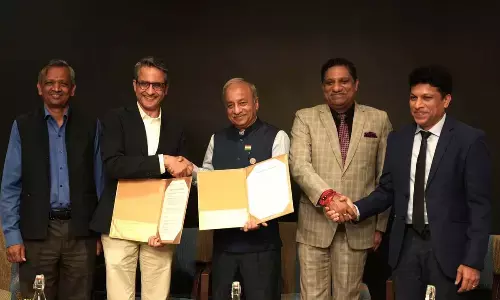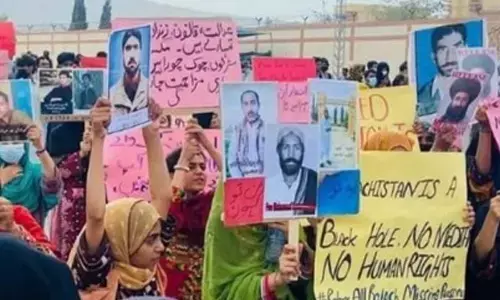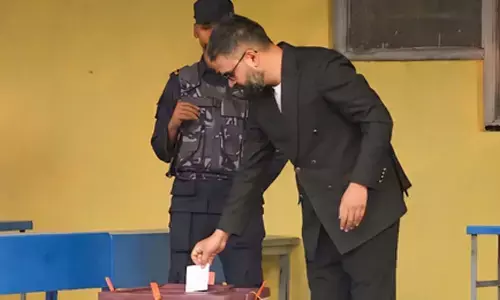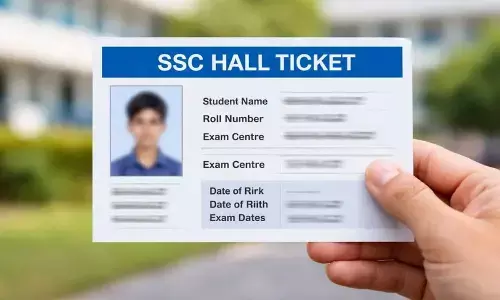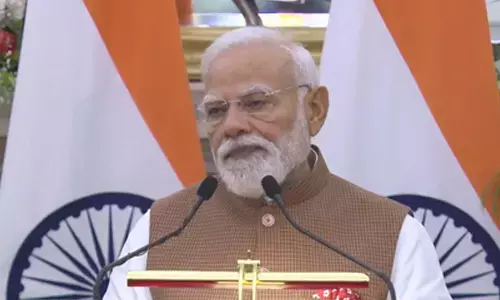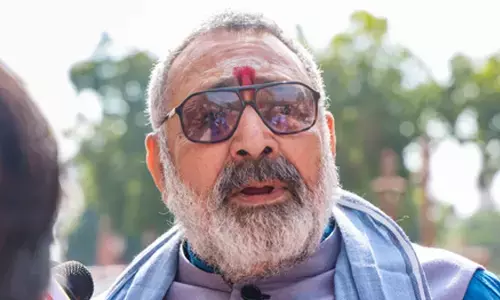A democratic fraud on Telugus
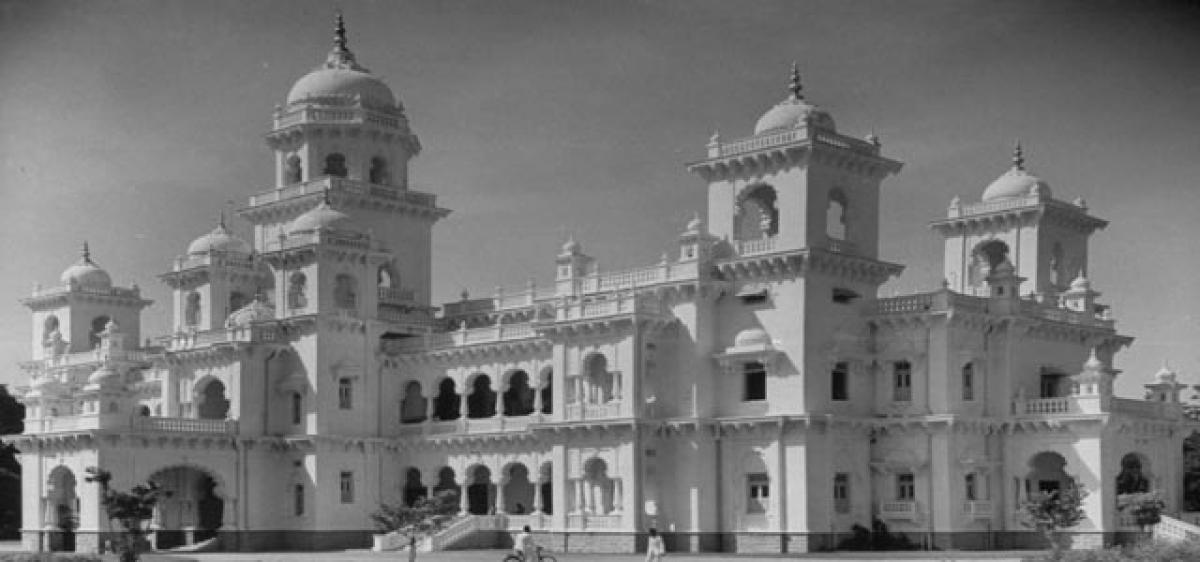
The Andhra Pradesh Reorganisation Act (APR Act) promises the two states of Telangana State and Andhra Pradesh that their Assembly seats will be increased from 119 to 153 in Telangana and from 175 to 225 in the latter.
The Andhra Pradesh Reorganisation Act (APR Act) promises the two states of Telangana State and Andhra Pradesh that their Assembly seats will be increased from 119 to 153 in Telangana and from 175 to 225 in the latter. But if the written reply given by the Union Minister of State for Home Affairs Ahir Hansraj Gangaram few days back is any indication, then it is clear that the Centre is in no mood to oblige.
The minister ostensibly took umbrage under Section, 26 (1) in the Act, which includes ‘subject to’ the provisions of Article 170 of the Constitution. This is nothing but a reiteration of the government’s stated stand on the issue. Rajya Sabha member TG Venkatesh had sought to know whether the Government of India had received a proposal from the Government of Telangana to increase Assembly seats as per the APR Act, and the Centre’s response thereof.
The Ministry replied by saying that the proposal of the Telangana Government cannot be implemented until Article 170 of the Constitution is amended. This reply is similar to the Ministry’s response to MP T Devender Goud’s Question in July 2016. At that time also the Home Ministry said that the Attorney-General had opined that such an amendment would not be “sustainable”. In the light of this the government did not plan to proceed with the proposed amendment.
The ramification is that the increase of Assembly seats, as guaranteed by the Act, will be put on hold till the first Census after 2026. This has come as grave disappointment for both Telangana and Andhra Pradesh. Leaders from the ruling parties, TRS and TDP, feel that there is enough evidence to show that the government’s interpretation is incorrect, and that it must change its stance at the earliest. They give two Supreme Court judgments as precedents-Mangal Singh (1967) and Mullaperiyar (2006)-wherein the Court ruled that amendments to the Constitution under Articles 3 and 4 were not ‘fettered’ or held back by other constitutional articles.
In fact, in Mangal Singh the Court specifically ruled that Section 13 (1) of the Punjab Reorganisation Act, 1966, overruled the provisions of Article 170 (1) even though it was indirect conflict with them. Thus the APR Act, which is passed under provisions of Articles 3 and 4, is tantamount to a Constitutional amendment and is not restricted by the provisions of articles 170. The existing S. 26 (1), if interpreted correctly, is enough by itself to enable the increase in Assembly seats. At the most a minor amendment is required to remove ambiguity and clarify its intent, according to TRS MP B Vinod.
The argument of the TRS is that a proviso has been added to Article 170 which puts the ‘freeze’ on delimitation till the first Census after 2026. But the proviso does not apply to the article as a whole. This a key point. It only applies to sub-clauses (2) and (3) of article 170. The freeze is thus an exception. It is not the essence of the article. To say that ‘subject to article 170’ means subject to the freeze up to 2026 is inconsistent with the spirit of the law and letter of Section 26 (Shall Increase). This reading makes the entire Section 26 meaningless and defeats the very purpose of assurance to broader representation to the people in the wake of division of the state into two new states.
Thus a correct interpretation of S 26 (1) would take the overall letter and spirit of the APR Act as well as Article 170 in its entirety. This would mean that Parliament must go ahead with the seat increase immediately and the seat increase must be guided by the substantive provisions of Article 170, that limits the number of seats and that they contain roughly the same number of people.
This is a serious issue and denies the right of democratic representation to the people of the two Telugu states for at least fifteen years. This period can even be extended as the original ‘freeze’ on delimitation in 1976 was supposed to last till 2000 but was subsequently extended to 2026. There is no guarantee that it will not be extended further. In effect, what it implies is that people from the two States may have to wait indefinitely for their right to democratic representation.
By V RAMU SARMA


